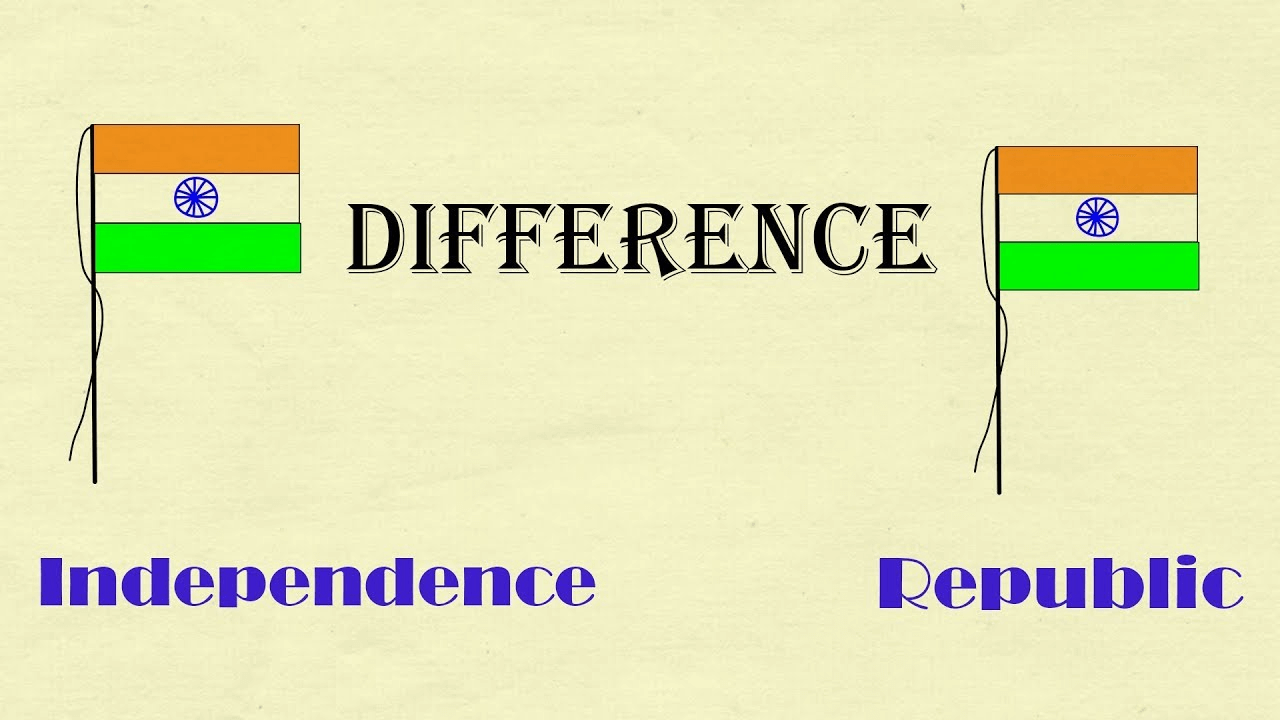Difference between Independence Day and Republic Day

Independence Day and Republic Day are both significant national holidays celebrated in many countries, including India. While they both commemorate important milestones in a nation's history, they differ in their focus and significance:
-
Independence Day:
- Meaning: Independence Day marks the anniversary of a nation's independence from colonial rule or foreign domination. It celebrates the country's freedom and sovereignty.
- Significance: Independence Day is a symbol of the nation's struggle for freedom and its ultimate achievement of self-governance. It represents the culmination of efforts and sacrifices made by freedom fighters and citizens to break free from colonial rule.
- Celebrations: Independence Day celebrations often include flag hoisting ceremonies, patriotic speeches, parades, cultural performances, and fireworks displays. It is a day of national pride and unity, with citizens coming together to honor their country's independence.
- Example: In India, Independence Day is celebrated on August 15th to commemorate the country's independence from British rule in 1947.
-
Republic Day:
- Meaning: Republic Day commemorates the establishment of a country's constitution and the adoption of a republican form of government. It signifies the transition from a colonial or monarchical system to a democratic republic.
- Significance: Republic Day celebrates the principles of democracy, equality, and justice enshrined in the constitution. It reaffirms the nation's commitment to democratic governance and the rule of law.
- Celebrations: Republic Day celebrations often include grand parades, cultural performances, and pageantry showcasing the country's military strength, cultural diversity, and achievements. It is a day to honor the constitution, national unity, and the contributions of citizens to the nation's progress.
- Example: In India, Republic Day is celebrated on January 26th to commemorate the adoption of the Indian Constitution in 1950, marking the country's transition to a republic.
In summary, while both Independence Day and Republic Day are important national holidays that celebrate significant milestones in a nation's history, they differ in their focus and significance. Independence Day marks the attainment of freedom from colonial rule, while Republic Day commemorates the adoption of a constitution and the establishment of a democratic republic.
Thank you,
